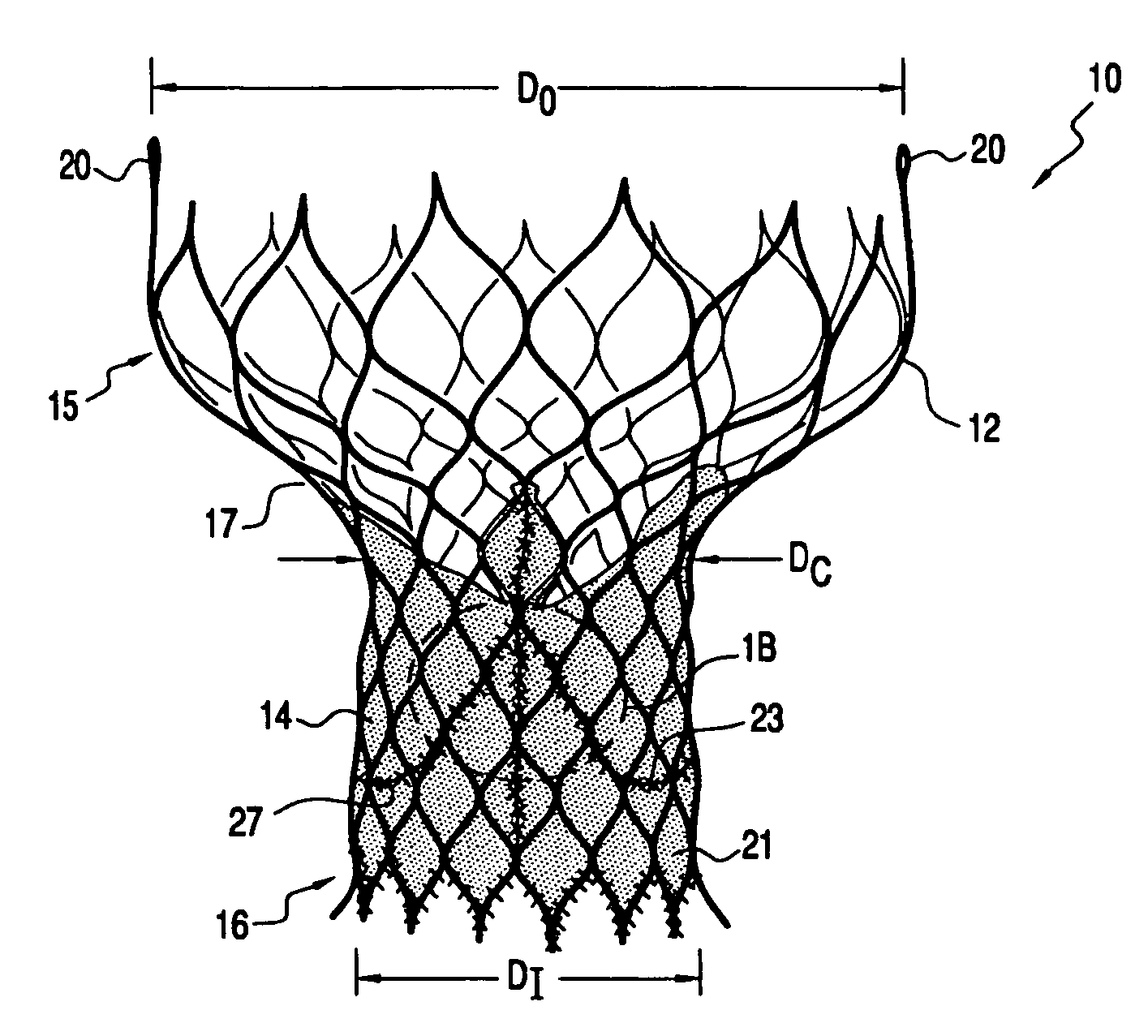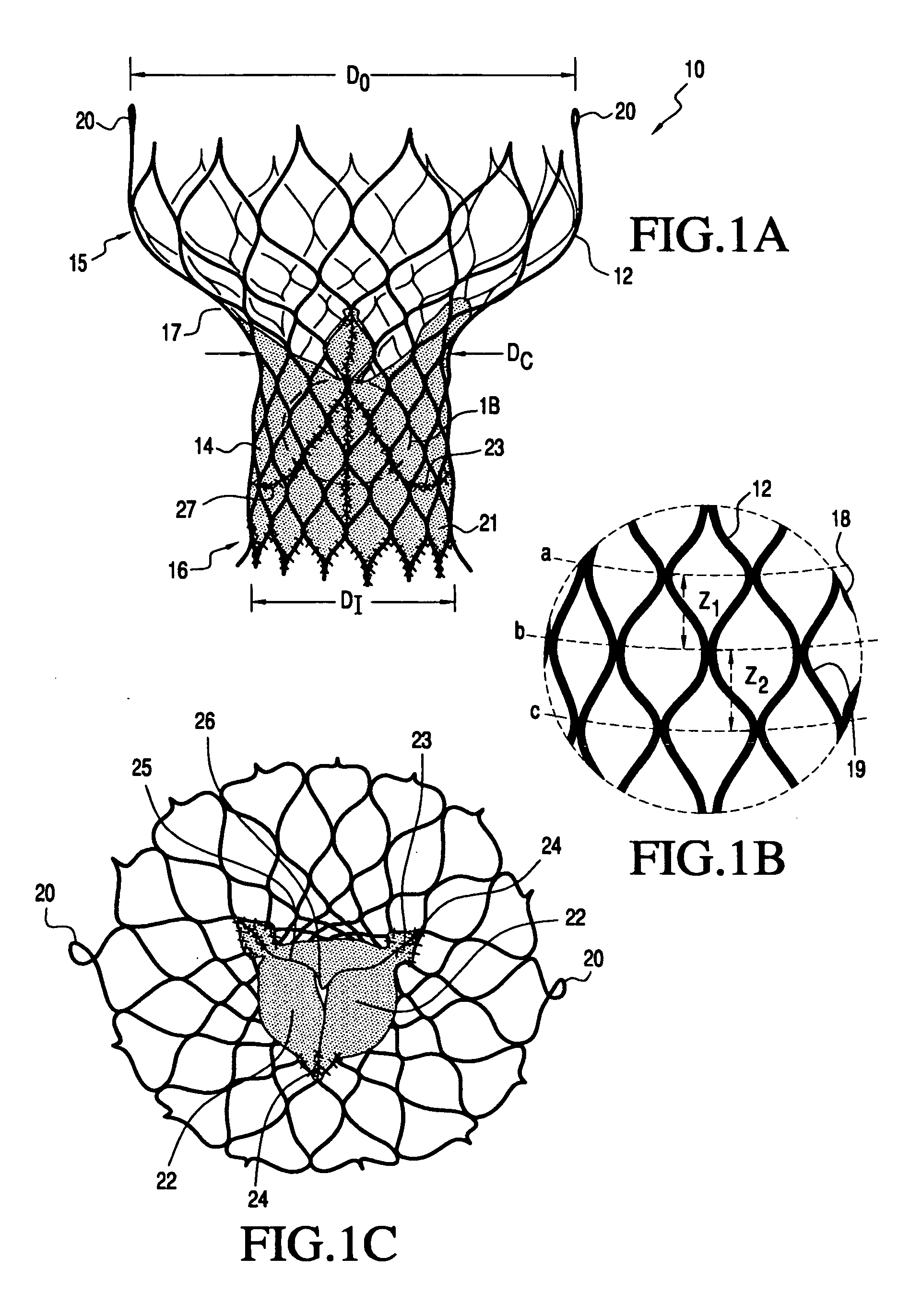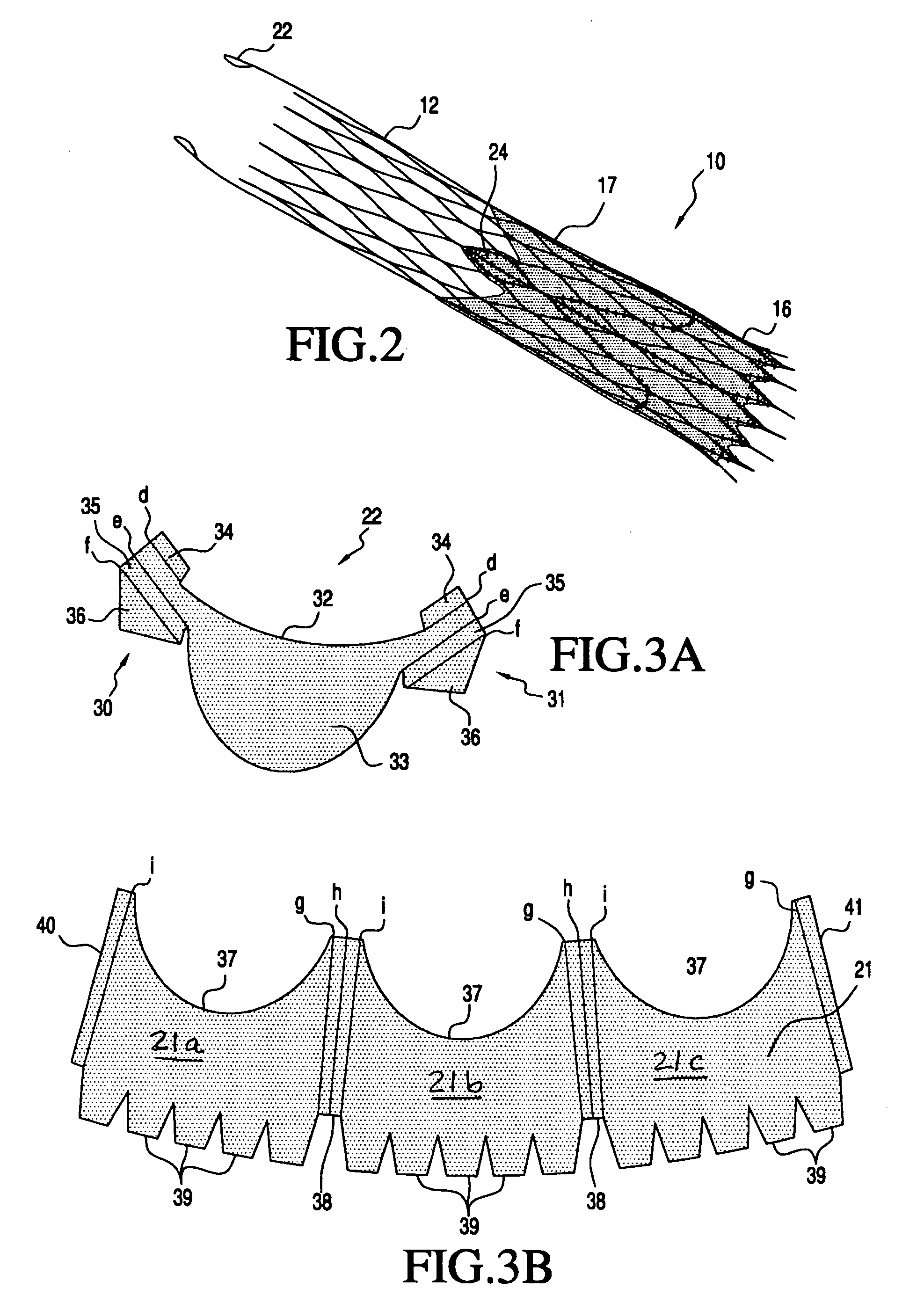Heart valve prosthesis and methods of manufacture and use
a heart valve and prosthesis technology, applied in the field of replacement valves, can solve the problems of life-threatening complications, significant patient trauma and discomfort, and considerable effort devoted to such techniques
- Summary
- Abstract
- Description
- Claims
- Application Information
AI Technical Summary
Benefits of technology
Problems solved by technology
Method used
Image
Examples
Embodiment Construction
[0044] The present invention is directed to a heart valve prosthesis having a self-expanding frame that supports a valve body. In a preferred embodiment, the frame has a tri-level asymmetric hourglass shape with a conical proximal section, an enlarged distal section and a constriction region having a predefined curvature when the frame is deployed. In the context of the present application, the proximal section constitutes the “inflow” portion of the valve prosthesis and is disposed in the aortic annulus of the patient's left ventricle, while the distal section constitutes the “outflow” portion of the valve prosthesis and is positioned in the patient's ascending aorta.
[0045] In a preferred embodiment the valve body comprises three leaflets that are fastened together at enlarged lateral end regions to form commissural joints, with the unattached edges forming the coaptation edges of the valve. The leaflets are fastened to a skirt, which is in turn affixed to the frame. The enlarged ...
PUM
 Login to View More
Login to View More Abstract
Description
Claims
Application Information
 Login to View More
Login to View More - R&D
- Intellectual Property
- Life Sciences
- Materials
- Tech Scout
- Unparalleled Data Quality
- Higher Quality Content
- 60% Fewer Hallucinations
Browse by: Latest US Patents, China's latest patents, Technical Efficacy Thesaurus, Application Domain, Technology Topic, Popular Technical Reports.
© 2025 PatSnap. All rights reserved.Legal|Privacy policy|Modern Slavery Act Transparency Statement|Sitemap|About US| Contact US: help@patsnap.com



